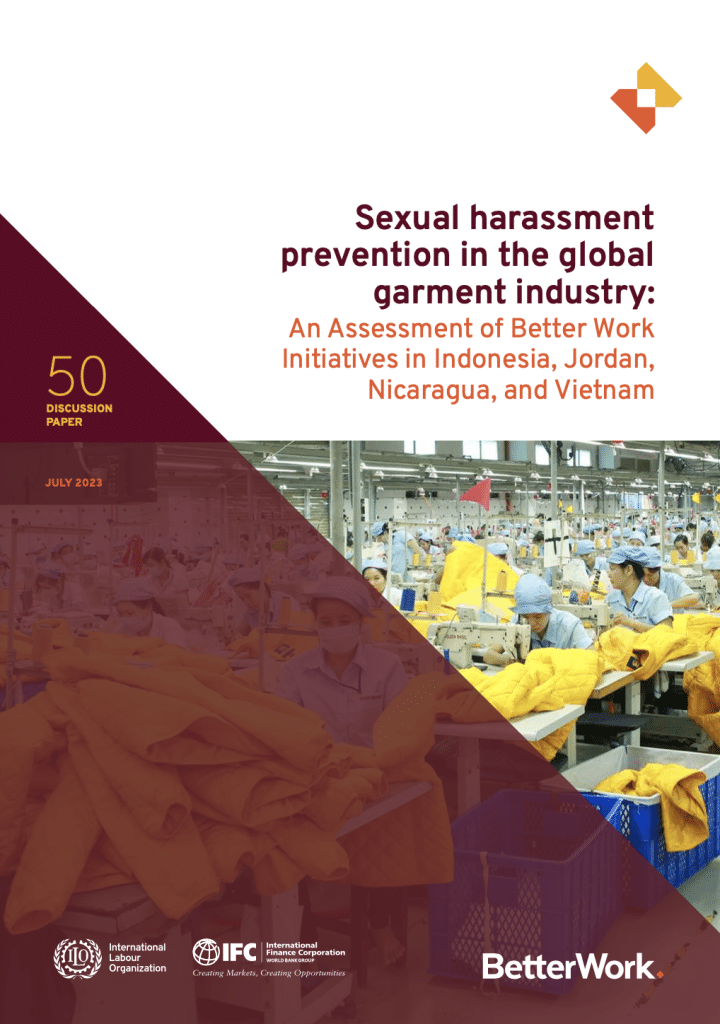An Assessment of Better Work Initiatives in Indonesia, Jordan, Nicaragua, and Viet Nam.
Author (s): Beth English, Kelly Pike, and Tinu Koithara Mathew (English and Pike are co-first authors and have contributed equally to this work.)
Sexual harassment and gender-based violence (GBV) are pressing issues in the global garment industry, perhaps more so during the pandemic when people are facing increased economic and social hardship. According to World Health Organisation estimates, 1 in 3 women globally experience GBV and women, especially young women, are most affected by this violence and harassment when they work at the bottom of the global supply chain. Through targeted and systemic approaches to sexual harassment awareness, prevention and remediation, Better Work (BW)-facilitated trainings on sexual harassment prevention have been introduced and are an important intervention in workplace GBV across BW’s eight country programs.
The current study conducted an empirical analysis of the ILO Better Work’s training program on sexual harassment prevention in Nicaragua, Jordan, Indonesia, and Vietnam. The analysis is undertaken with the dual goals of assessing the trainings’ impact on raising awareness and increasing the likelihood of intervention at the factory level, and 2) identifying strengths and areas of improvement in existing processes and practices.
Overall, findings indicate that improvements have been made in the levels of recognition of sexual harassment and in attempts to curb it in the factories and that the social and cultural lens through which the trainings are delivered and received significantly impacts their efficacy. The study participants showed an expanded or reinforced understanding of gender equality and how gender functions in the workplace to perpetuate inequalities and they have developed a better understanding of sexual harassment and ability to identify specific harassing behaviours. The participants demonstrated an awareness of the existing sexual harassment policies and increased understanding of how to report incidents of harassment.
